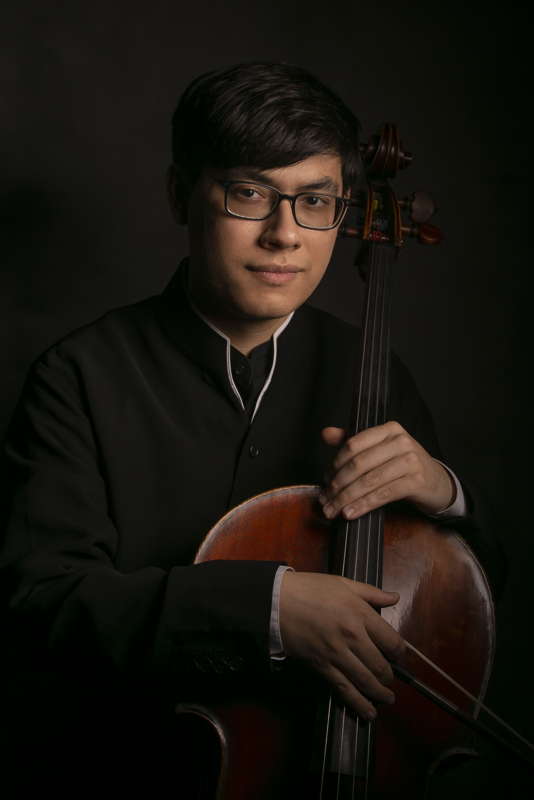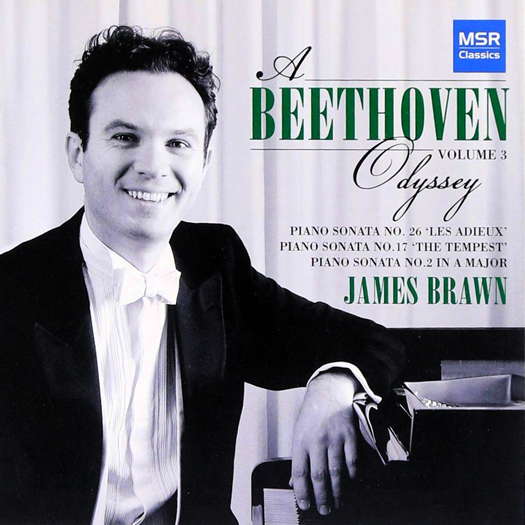 SPONSORED: CD Spotlight. Most Remarkable - Jamaican pianist Orrett Rhoden, heard by Bill Newman.
SPONSORED: CD Spotlight. Most Remarkable - Jamaican pianist Orrett Rhoden, heard by Bill Newman.
All sponsored features >>
Simply Outstanding
MIKE WHEELER listens to Dukas, Elgar, Tabakova and Walton from Zlatomir Fung, Ben Gernon and the BBC Philharmonic Orchestra
There's a lot more to Dukas' The Sorcerer's Apprentice than just an orchestral showpiece, or straightforward comedy. The BBC Philharmonic Orchestra's performance, conducted by Ben Gernon – Royal Concert Hall, Nottingham, UK, 20 October 2022 - brought out the increasingly dark nature of the Goethe poem on which it's based. Starting in expectant stillness, it developed a rhythmic panache that felt it could topple into hysteria at any moment. The contrabassoon and bass clarinet duet, as the chopped-in-half broom comes back to life, had a real sense of menace, and the final climax arrived with a palpable shock.

Ben Gernon
Elgar's Cello Concerto has consistently attracted young soloists. One of the latest, Bulgarian-Chinese player Zlatomir Fung, brought to it some remarkable qualities. His restrained way with the opening flourish signalled a player completely attuned to what Elgar, in a different context, called his 'stately sorrow'. Throughout the first movement, this was a reading that hardly dared to raise its voice, though every note carried, with orchestra and conductor backing him to the hilt. It also danced at appropriate moments. There was similar restraint at the start of the second movement. The playing all round was a marvel of will o'the wisp fragility that also threw into relief the sheer skill of Elgar's orchestration. The third movement was both totally inward and totally riveting – a masterclass from everyone on the platform in holding an audience's attention. The finale's ambivalence – Elgar's former confident manner, but also not – was nicely caught. The clarinets adding their tangy colour was just one ear-catching detail. The eventual glance back at the third movement was shot through with a sadness that didn't need to draw attention to itself, and the return of the first movement's opening flourish seemed more a natural outcome rather than an unexpected turn of events.

Zlatomir Fung. Photo © Fred Conrad
Fung's encore was not announced, but thanks to BBC Sounds - the concert was broadcast live on BBC Radio 3 - I learned that it was the second movement of Pirin by Dobrinka Tabakova, a three-movement work, originally for solo viola, named after a mountain in Bulgaria - a nod to the player's and composer's shared heritage. It sang, it danced, aided by the pin-point accuracy of Fung's double-stopping.
The account of Walton's Symphony No 1 after the interval was simply outstanding. The impetus and precision of the BBCPO's playing and Gernon's conducting matched the white heat of Walton's invention, with the opening oboe theme, and its later recurrences, both plangently expressive and full of tensile strength. Moments when the pace eased still maintained the tension. The second movement had just the right mix of quicksilver and acid, and the repeated-note figure that punctuates the movement was positively savage.
The flute solo that opens the slow movement was both cool and sad, while the long string theme, later, brought a degree of balm. However dense the writing, Gernon and orchestra ensured there was always a thread to keep hold of, as they built the climax inexorably. They established a tone of brisk exuberance at the start of the finale, with no loss of detail. The central fugue was sharply etched, and at the final climax the second pair of timpani added to the weight of sound without overbalancing it.
With the BBC Philharmonic on top form, and Ben Gernon once more showing that he is one of the outstanding conductors of his generation, the entire concert had me on the edge of my seat.
Copyright © 28 October 2022
Mike Wheeler,
Derby UK




